If you enjoy The Sims game and appreciate constructing, designing, and managing people’s lives, then you are in luck! There exist countless games like Sims that offer such opportunities. You can farm, build cities, explore new worlds, and weave magical tales in these extraordinary games. They will keep you occupied and entertained for endless hours, no matter if you prefer combat or relaxing, creative gameplay!
So, keep reading this blog as we’ll suggest to you the top 8 games similar to Sims, and we’ll also suggest to you some effective tips to create a safe and family-friendly environment. So, come with us!
What kind of game is The Sims?
The Sims is a digital video game in which a player can simulate a whole life. For example, you design and manage characters called Sims, which are virtual people. You can customize their appearance, assemble houses to your liking, and dictate their daily activities. Remember! The game has no defined particular goal; instead, you are free to play as you see fit– this further enhances the sense of connection with the game.
Also, you Aid your Sims in transitioning from one stage of life to the other, which include: childhood to old age. Therefore, along the journey, they make friends, fall in love, get jobs, and even have children.
Moreover, one of its most important unique attributes is the extensive customization options. You determine every detail, from the design of their home to their personality traits. It is purely creativity and Rife with options.
Thus, with open-ended gameplay, sentiment in real time, and the ability to finely control details, the Sims grants players the opportunity to experience a real life.
Concerned about the games that your kids play?
Use parental controls to make gaming safer for your kids
8 games like The Sims
If you are a fan of The Sims, then be happy as there is a variety of games similar to The Sims with storylines that involve farming, city-building, or even world exploration. In this scetion, I’m going to discuss 8 amazing games that provide the same creative expression as The Sims.
i. Stardew Valley
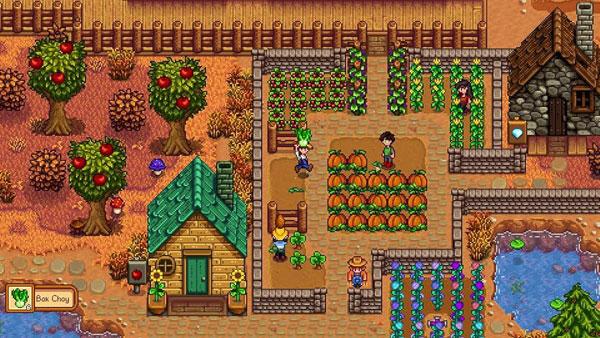


Age rating: 10+
In Stardew Valley, players are presented with an opportunity to relocate to a quaint farm and start off anew. You grow crops, tend to animals, and forge friendships with the villagers. From falling in love to starting a family, the game allows a player to shape their story the way they want. While it shares some elements like The Sims, the focus is on farming and is more relaxed.
| Pros | Cons |
| Engaging and soothing gameplay Helps users relax and destress Helps strengthen friendships with NPC | Limited home decorating options Simple graphicsIt can get repetitive after a while |
ii. RimWorld
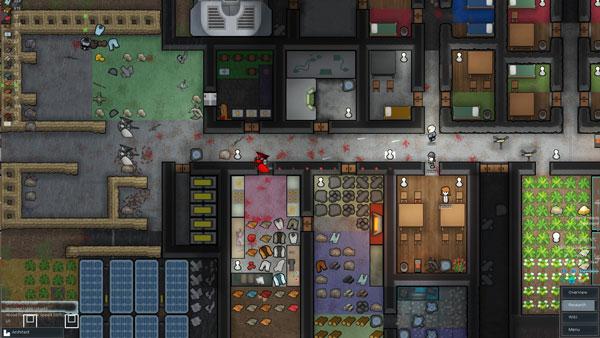


Age rating: 13+
In RimWorld, you oversee a group of survivors left on a remote planet. You manage their day-to-day life, from their health to their jobs. The game’s choices shape a new story every time you play. It’s like The Sims, but with survival and sci-fi elements.
| Pros | Cons |
| Uniqueness for every game played Striking characters along with captivating stories Diversity in the way of playing | Challenging to comprehend from the outset Lacks advanced aesthetic design Complexity increases greatly in the late stage |
iii. Cities: Skylines
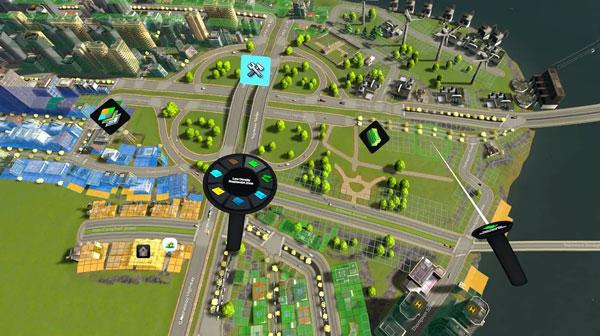


Age rating: 10+
If you like building in The Sims, then Cities: Skylines is the game for you. Instead of houses, you build an entire city. From Roads to police stations, parks to terminals, even hospitals, you get to decide. While it’s more about the construction rather than the simulation of lives, it offers a lot of free space.
| Pros | Cons |
| Huge freedom to design Many design tools Detailed city-building features | No character storiesIt can be tough for beginners Takes time to manage |
iv. Animal Crossing: New Horizons
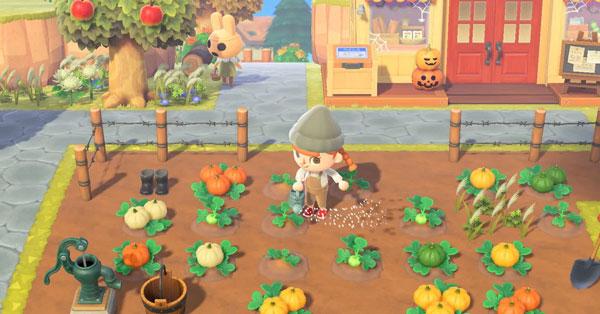


Age rating: 3 and up
In Animal Crossing: New Horizons, you live on an island which is inhabited by cute animals. You don’t just decorate your house. You build relationships and create your own little world. It’s relaxing and fun like The Sims, but instead, it focuses on nature and community.
| Pros | Cons |
| Cute graphics and relaxing gameplay. Relaxing, immersive gameplay at one’s own pace. Made for all ages. | Only made for the Nintendo Switch. Moves on real-life as opposed to in-game. Limited activities. |
v. Coral Island
Age rating: 10 and up
In Coral Island, you are taken to a tropical island where you can farm, take care of animals, and befriend the locals. Moreover, it feels like The Sims, but with a more island twist due to the colourful graphics along with the soothing gameplay.
| Pros | Cons |
| Stunning visuals Numerous methods to socialise Straightforward to begin | Still updating Some bugs Limited content for now |
vi. The Sims Medieval
Age rating: 12+
For those who enjoy The Sims and want an adventurous spin, The Sims Medieval is the perfect option. It is the same as the life-simulation, but this time set in the past. You guide heroes, complete quests, and manage kingdoms. It is incredibly fun and has many stories, just this time around, it is medieval.
| Pros | Cons |
| Fun medieval world Quests make the game exciting | Less freedom than regular The Sims Limited construction options |
vii. Tiny Life
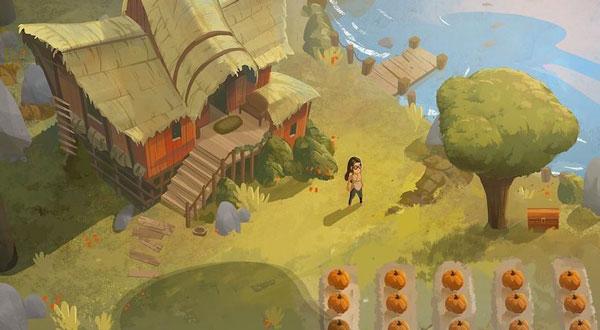


Age rating: Age 10+
Tiny Life is a cute pixel art version of The Sims. You get to create characters, design houses, and guide the characters through their life. It can be easy to play, and the fun factor is present, though in a simpler form.
| Pros | Cons |
| Fun and simple gameplay Adorable graphics Carefree | Lacks many features present in other games In development Not many ways to interact |
viii. My Time at Sandrock
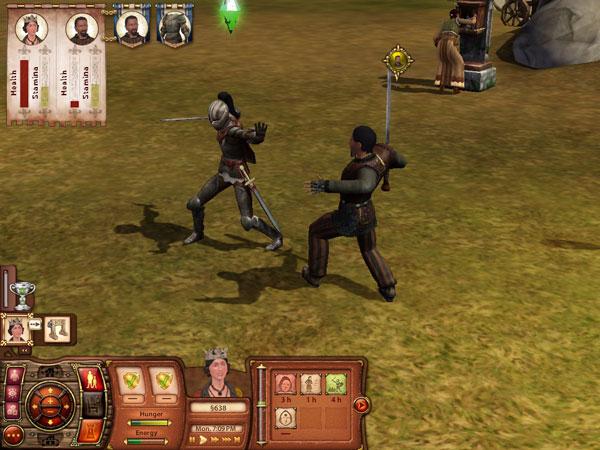


Age rating: 10+
In My Time at Sandrock, you live in a desert town as a builder. You make the needed tools, furnish the workshop, and assist the local people. You also discover ruins and unlock mysteries. So it combines life simulation, adventure, and crafting.
| Pros | Cons |
| An engaging universe to navigate through Excellent Character Interactions Merges crafting with adventure | Requires additional polish Can be redundant |
Thus, the above listed games offers a chance to create a world akin to that of ‘The Sims’. However, all of them come with their distinctive perks. If you are a fan of farming, city building, or exploring new territories, there’s a piece of cake for everyone!
Are games like The Sims family-friendly?
While researching simulation games such as The Sims, consideration should be made if the game is appropriate for the entire family. Here is a viewpoint that explains an assessment that seeks to ensure the game is suitable for younger players.
i. Importance of Game Rating Reviews
The age ratings of video games serve a valuable function when it comes to determining if a video game is appropriate and safe for particular individuals. They also assist parents in deciding whether or not to purchase a video game.
Different ESRB systems categorizes which age group can play the games. For instance; Stardew Valley along with Animal Crossing: New Horizons are classified as E rating meaning everyone can play and children can enjoy it. However, RimWorld and The Sims Medieval are rated T meaning suitable for ages 13 and older, because it has deeper themes. Thus, it is important to check ratings before engaging in such games to avoid inappropriate content.
ii. Content: Adult themes and Violence
Additionally, a game is considered family friendly if it lacks themes such as violence hence, those themes are absent. From my point of view, life simulation games such as The Sims, Animal Crossing, and Sims simply cannot be X-rated, which makes them above average family-friendly. Participants take part in positive activities such as building houses, farming and making friendships with other participants.
In addition, RimWorld and The Sims Medieval include more adult content, such as psychological problems, survival, and even violence. These games can be very graphic, with footage of death and character emotional breakdowns. Thus, these games can be played at ages of older teenagers due to the intense moral conflicts that arise in the gameplay.
iii. The Approach to Social Interactions, Building, and Creativity
Moreover, family-oriented games direct their focus entirely on social interaction, construction, and the overall creative aspect of gameplay in a more positive light. Games like Stardew Valley, and Coral Island allow players to interact with good NPCs, decorate and renovate houses, and even explore areas without any negatively harrowing experiences. The focus is on artistry and self-expression so players can improve their world in imaginative and constructive ways.
However, other more advanced games like RimWorld do incorporate social interactions. These interactions tend to be much more intricate, and at times, rather harsh. For instance, in RimWorld, players have to deal with managing characters in violent emotional conflicts set in a primarily violent narrative. So, you have to be cautious!
How to create a safe, family-friendly gaming environment?
To ensure that children have fun while playing video games, a good environment protects children and users. Therefore, to help reach this goal, here are some steps you can take.
i. Set Up Age-Relevant Content Filters
As the first step, set up filters based on content on your gaming consoles. Most gaming systems, to some extent, come with some preset age restrictions that regulate the games users can access. These safety filters work to a certain extent and allow you to have peace of mind as a parent because you know that your child is not playing adult games meant for older children but is instead, using games made for their age.
ii. Promote Problem Solving and Creative Game Play
Now, look for games that promote problem solving, creativity, and positive pro-social behavior. A good example; Animal Crossing and Stardew Valley, is great for them because children can construct, explore, and interact with other children in imaginary worlds where their creativity is borderless. Moreover, these games also encourage children to collaborate, think critically, and tap into their imaginations, which are essential life skills.
iii. Monitor In-Game Purchases
Furthermore, you should also monitor spending related to gaming to avoid any unwanted financial expenditures, which could spoil the enjoyment of gaming for children and families. Remember! Numerous games come with the added feature of selling virtual goods and upgrades, and so it would be prudent to enable password protections.
iv. Use Parental Controls apps
Like with content moderation, parents can also manage game-related interactions and the duration of play sessions using these controls. Almost all gaming consoles have the feature to set time limits on use so that the child does not game excessively at the expense of school work or outdoor play.
You can limit who your child engages with on the internet which reduces the chances of exposure to cyberbullying. For parents wanting to track gaming activity on their child’s device more, alongside other tools, FlashGet Kids provides more detailed tracking showing the child’s gaming and browsing activity in real-time. Lets check its attributes first for good understanding!



- Screen mirroring: Via FlashGet Kids, you can monitor in real-time what games your kids are playing and monitor their digital connections.
- Screen time: Additionally, children may spend too much time focused on gaming while ignoring other areas of their life, such as studying or their personal well-being. Thus, with FlashGet Kids, you can set time limits on specific games. Moreover, you will receive an immediate notification if they go above the time limit.
- App blocker: In this way, the children can be fully protected from being able to view games that are not appropriate for their age. This helps in maintaining a healthy digital environment.
This way, parents can have the peace of mind that the child is well guarded and having a good time while the child is happy to play the games he or she enjoys.
Conclusion
To ensure that video games are enjoyable and secure for your family, it is crucial to establish age restrictions, motivate creativity, and employ parental controls for screen time and online supervision. Moreover, monitoring purchase within the game and picking games that encourage healthy and positive conduct are fundamental to fostering a wholesome environment. For additional assistance, tools such as FlashGet Kids can monitor and manage the activity which helps maintain a safe and enjoyable gaming experience.

